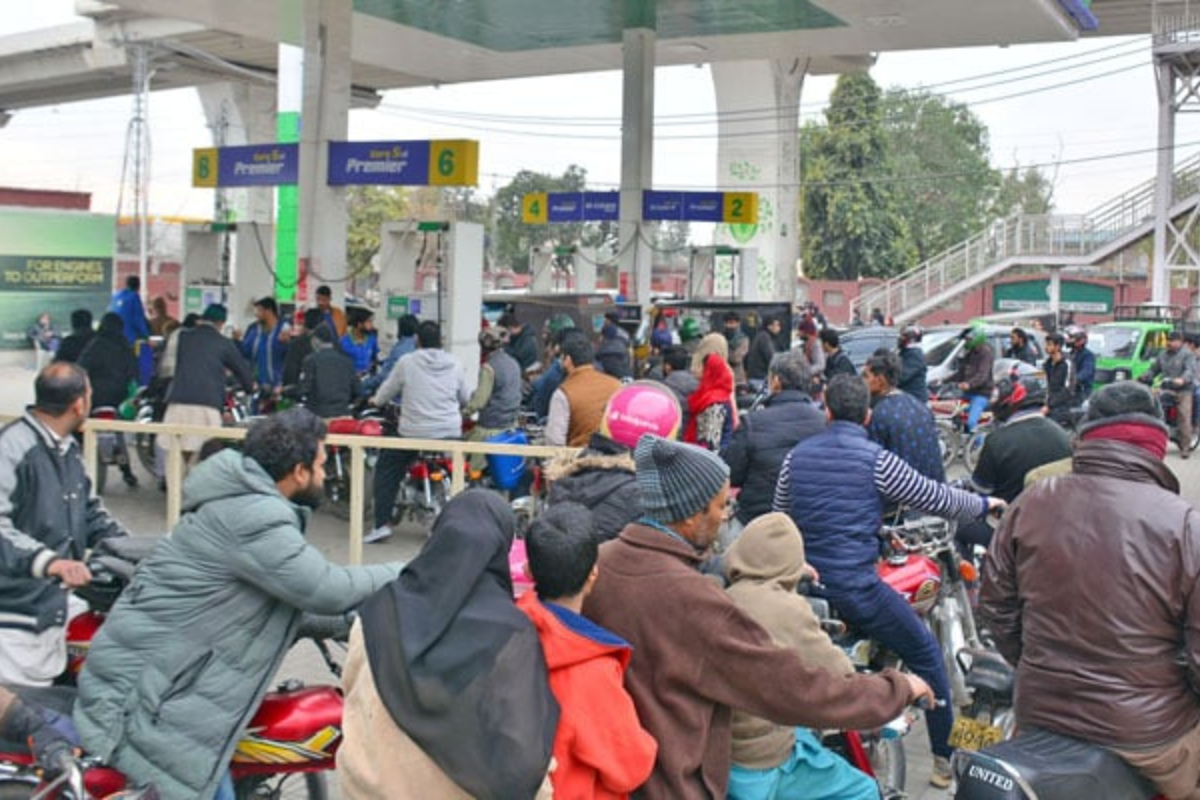The Central organisation of traders (Markazi Tanzeem Tajiran) of Pakistan have threatened to launch nationwide protests from February 13 if the government increases further taxes based on IMF recommendation.
While addressing the Pakistani media in Islamabad, the organisation’s leaders warned the rulers that the country’s economic situation had left no room for burdening the general public and the trading community with more duties.
Kashif Chaudhry, the organisation’s president, said that he is asking all the stakeholders, including the ruling elites, to make “sane decisions” if they want to improve the economy.
He further stated, “Our reaction will be severe if more taxes worth billions of rupees are imposed, as reported in the media.”
He also called for a reduction in expenses incurred by the president, prime minister, legislators, judges, army officers and bureaucrats.
Chaudhry said the government should cut all “non-productive expenditures” immediately by half.
Calling out the leaders as criminals, Chaudhry stated that the state of the economy of a nuclear country was in dire straits and the situation was worsening with each passing day, the public should not suffer because of the “flaws or crimes committed by the leaders of this country”.
The other representatives of the trade body also demanded the government formulate long-term and short-term economic policies and asked them to ensure income tax collection from all sectors instead of imposing billions in taxes.
The chairman of the body, Khwaja Salman Siddique, criticised the Pakistan Finance minister Ishaq Dar and accused him of being stubborn and ignorant of demands made by them to remove the artificial cap imposed by him on the dollar.
Siddique said, “Putting an artificial cap on the dollar’s rate led to a wide gap between the interbank and open market rates, and despite the demand to remove the cap, FM Dar remained stubborn and did not listen to anybody.”
Some members called for the implementation of the decision of the Federal Shariat Court to make Pakistan’s economy interest-free to “eradicate exploitation in the system”.
They also sought an amnesty scheme to let the rich bring their foreign wealth home. The government can then take loans from these affluent people and give them profits instead of taking loans from the IMF and the World Bank under harsh conditions.
Meanwhile, the fuel companies in Pakistan have sounded an alarm over the availability of petroleum products with the sudden and drastic depreciation of the rupee apart from the shortage of the US dollar.
The Pakistani rupee (PKR) saw a loss of PKR 5 and further fell to PKR 280 against the dollar in the open market. The foreign exchange reserves with the State Bank of Pakistan have fallen to just $3.086 billion.
The Oil Companies Advisory Council (OMC) Secretary-General Syed Nazir Abbas has requested an immediate meeting with the chairman of the Oil and Gas Regulatory Authority (OGRA) and the Petroleum Division Secretary of the Ministry of Energy, noting that their members are suffering as a result of the rupee’s depreciation.
Seeking an urgent meeting to discuss the way forward, Abbas has pointed out how the depreciation of the rupee, which lost around PKR 32 in a single week, has caused a loss of billions of rupees to the industry.
“Letters of Credit are expected to be settled at the new rates, whereas the related product has already been sold (at the old rates),” Abbas said. “These losses not only have an impact on the profitability of the sector, which is already under severe pressure, but also on its viability, since these losses in some cases might exceed the entire year’s profit for the sector,” he added.
The OMCs have asked for immediate action to compensate the industry for its losses. The OMCs have further claimed that the trade finance limits available from the banking sector for the oil industry following the rupee depreciation and global increase in oil prices have become inadequate.
Warning that the industry is on the brink of collapse, the OMCs have demanded that the government increase the trade finance and letters of credit limits for the industry in line with the current oil prices, exchange rate and volumes being handled by each company. They have urged the government to take immediate steps to address the dire situation facing the country.










